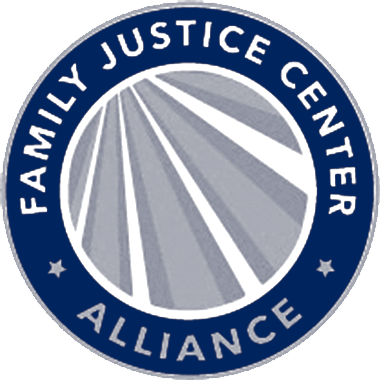Fairfield Police Det. Kerry Dalling has more than a decade of experience working domestic violence cases.
Soon after CFJ officially became the state’s first Family Justice Center in April, the detective and 20-year-veteran of the Fairfield Police Department was the first law enforcement partner to formally join us on site.
We chatted with Detective Dalling in her office in the lower level of our renovated headquarters about her role here as an on-site partner during one of her weekly visits to CFJ.
CFJ: Is there a myth about domestic violence that you would like to dispel?
Det. Dalling: It’s almost a cliché, but the one that sticks out is how truly difficult it is to leave an abusive relationship. You hear people say, “Oh, why doesn’t’ she just leave?” But it is so complicated to leave: You have tangible ties to your abuser; it’s a home, children and the financial dependency on someone. It is also confusing as this is a person you love. It is not a simple thing to leave. That’s something in law enforcement that takes some experience and sensitivity to understand.
CFJ: Has working here as an on-site partner expanded your insight into victims’ needs?
Det. Dalling: One area where I’ve developed greater understanding already is when it comes to the unique issues facing the LBGTQ community. It’s been great to get to know the (partners) working on site here from the Triangle Community Center. I’ve learned a lot about how much abuse is going on in the LBGTQ community and how much fear and reluctance there is for victims who want to come forward and get help. It’s extremely difficult and there’s a lot of isolation and obstacles for them. As law enforcement, we have a lot to learn so we can serve the LBGTQ community better.
CFJ: Can you give us a glimpse of how domestic violence manifests itself in a suburb such as Fairfield? Are the issues a victim in the suburbs experiences any different than they might be in a city?
Det. Dalling: You know Fairfield is typical of a lot of communities in that something like 30 percent of the cases we see are domestic violence. If anyone thinks this is something that doesn’t happen in the suburbs I can tell you we have plenty of it. What’s different, perhaps, is that we have unique barriers in the suburbs that keep people from coming forward. People worry about having the police car parked in front of their house and what that says. There are social barriers; people don’t want the neighbors to know and it impacts people’s willingness to stay in an abusive relationship or their fear about calling law enforcement. They worry about what happens if they leave. Where will they go? Where will the kids go to school? There are barriers to reporting everywhere, but ours are often about social considerations.
CFJ: Are there any advantages to being part of the CFJ team and on site as a partner?
Det. Dalling: The benefit is that it’s so much easier to communicate. We are working as a team and I think the clients see that. Anything that enhances our response to them and makes them feel supported is a good thing. It’s a struggle in that it’s all new for us, but the important thing is the partnership part.






